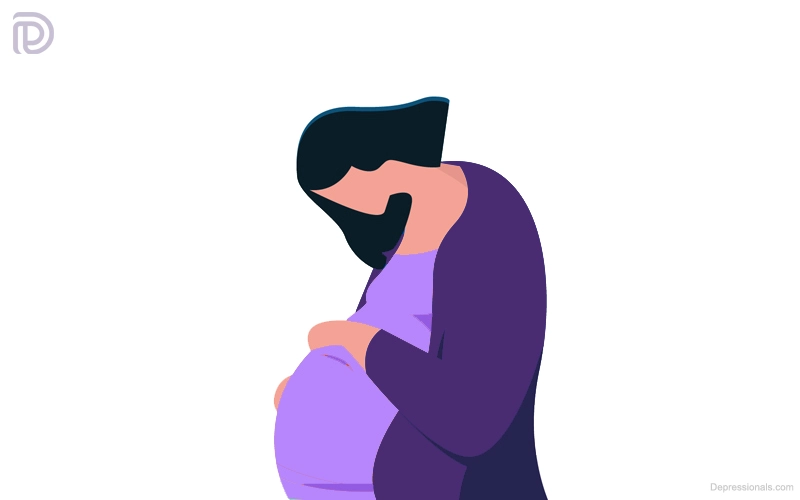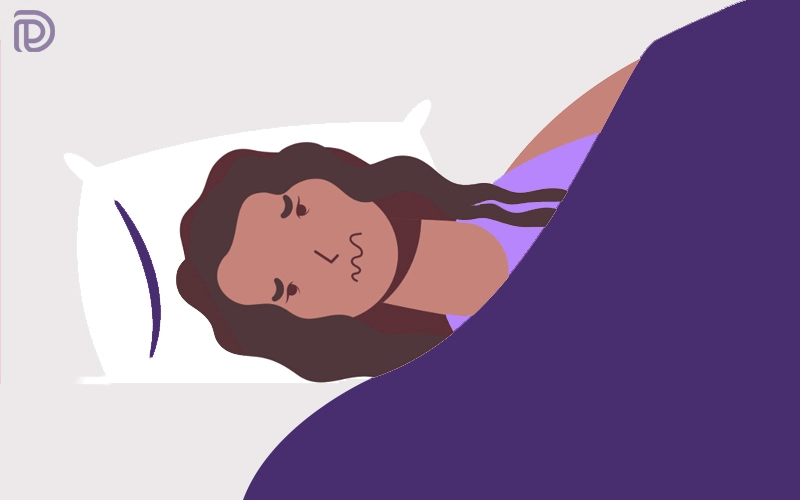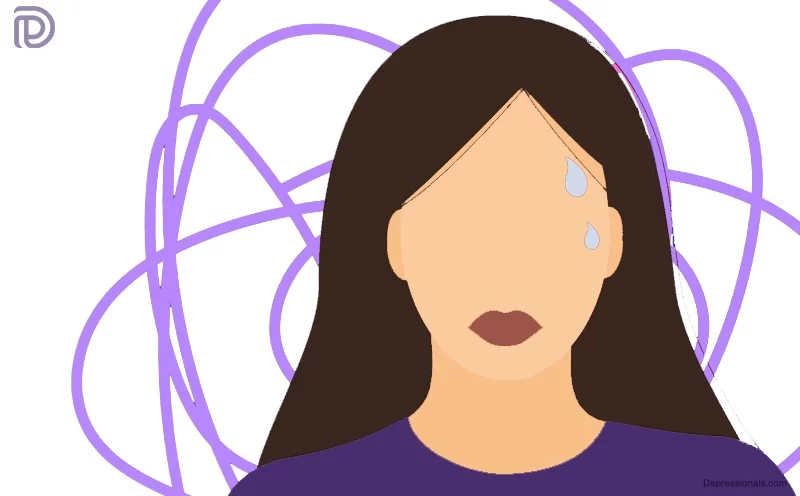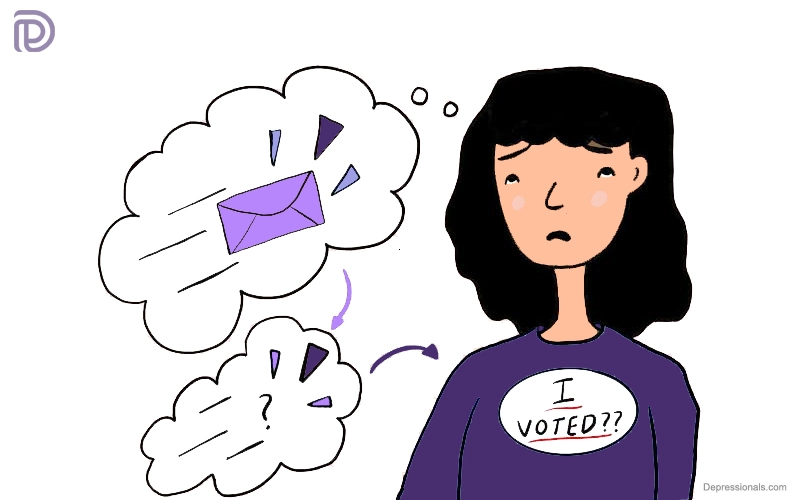Before anxiety during pregnancy, your second line on your pregnancy test was such a joy a few months ago. But now? It feels as though something is wrong at every turn. The feeling just won’t go away, and it’s affecting your everyday life in a negative way.
The joys of pregnancy aren’t supposed to end when the baby is born? How do you cope with anxiety? Find out how you can cope with anxiety during pregnancy.
How common is anxiety in pregnancy?
It is very common for pregnant women to experience anxiety during their pregnancy. Pregnant women are more than 10 times more likely to have it than nonpregnant women. It is not a sign of failure if you aren’t coping with your situation, but rather a sign of strength.
During pregnancy, you will surely experience a lot of emotions and it can sometimes be very hard to tell whether your feelings are manageable or a sign of something more serious that needs attention. Make sure you trust yourself. It is up to you to decide if your feelings are normal for you and if they are not. It’s important to ask for help if you have a lot of anxiety during pregnancy or suffer from panic attacks a lot.
Many women experience postpartum depression after giving birth. During pregnancy, you may also experience other mood disorders. An anxiety disorder affects more than 10 percent of pregnant women.
Read: Postpartum Anxiety
Causes of anxiety during pregnancy
The symptoms of some pregnant women improve, but anxiety may become worse. There are a number of reasons why feeling anxious is unavoidable. Your brain’s chemicals may shift during pregnancy due to hormonal changes. If this happens, you may feel anxious.
Your body will go through many changes during pregnancy. The feelings and sensations we experience can be enjoyable or uncomfortable depending on our mood. Other issues may even arise and cause you to wake up in the middle of the night.
Symptoms of anxiety during pregnancy
Being worried during pregnancy is normal. This is a new situation for you. It is possible that you have experienced situations, such as miscarriage in the past, that make you concerned. However, if these worries become overwhelming and start to affect your everyday life, you might experience anxiety.
You may experience:
- Feeling uncontrollably anxious
- Constant worry, particularly about your health and your baby
- Lack of concentration
- Feeling irritable or agitated
- Having tense muscles
- Having trouble sleeping
Some people experience panic attacks when they are anxious. The symptoms above may appear suddenly, and the attack may progress. You may experience physical symptoms during a panic attack, making your situation even worse.
The following are some symptoms of panic attacks:
- Shortness of breath
- The sensation of going crazy
- The fear of something terrible happening
Also check: Stress During Pregnancy
Risk factors for anxiety during pregnancy
It is possible for anyone to develop anxiety in pregnancy, but certain factors are at risk, including:
- Panic attacks or anxiety in the family history
- Anxiety, depression, or panic attacks in your own life
- Past trauma
- Substance abuse
- Stress in everyday life
Read: Postnatal Anxiety
Pregnancy-specific anxieties and phobias
The process of giving birth may make you feel anxious or a bit scared. There is a very high probability of this happening. There is no reason why you should feel hard on yourself for feeling this way during pregnancy and childbirth, because these are important life events. Doing some positive things about your pregnancy and talking with your midwife may help you in getting ready for labour.
An individual with a phobia experiences an overwhelming and incapacitating fear of something. There are cases, but they are rare, where some women are so scared of giving birth that they do not want to go through with it, even if they really want a baby, even if they are very determined to have one. They may also decide to give birth to a baby in a different way because of a severe fear of childbirth. This is referred to as Tokophobia.
There are many reasons why women fear childbirth, whether they have experienced traumatic births, miscarriages or neonatal deaths, that lead to their fear. They may have PTSD in this case, which is an indication of a traumatic event.
Fear of needles may also cause problems during pregnancy, due to the possibility that some women may avoid important medical procedures or blood tests because of the fear of needles.
There is no better time to talk to your midwife or to your GP about uncomfortable feelings related to your pregnancy or anything that might affect your pregnancy than right now if you are experiencing overwhelming anxiety or terror about anything relevant to your pregnancy. Mental health specialists should be consulted for the treatment of this type of problem.
Treatment for anxiety during pregnancy
If you are experiencing mild anxiety, your doctor may not need to prescribe any specific treatment, but you should tell him or her about your feelings.
If you have severe symptoms, your doctor may recommend medications after evaluating the risks and benefits.
Anxiety and your baby
Perhaps you’ve been told that you shouldn’t worry because it isn’t good for your baby by well-meaning friends. While their sentiment is sincere, stopping the cycle may feel like a difficult task. Even so, research indicates that controlling your anxiety is a good idea.
Anxiety during pregnancy effects on baby, when pregnant women suffer from high levels of anxiety, they’re more likely to develop preeclampsia, premature birth and low birth weight.
Read: Depression During Pregnancy
How to treat anxiety during pregnancy
1. Talk about it
Anxiety in pregnancy should be expressed to someone. Support may be offered by a partner, a family member, or a close friend. Sharing your feelings and thoughts can prevent them from affecting your everyday life.
If you suffer from anxiety, your doctor may also recommend you see a therapist who specializes in anxiety treatment. Pregnant women may also find it beneficial to consult with such a therapist.
2. Find a release
There are activities that can help you reduce anxiety and stress. You release endorphins when you exercise. Endorphins are naturally occurring painkillers. Exercise is one of the best methods for managing stress.
Here are a few suggestions:
- Walking
- Running
- Yoga
Do you not enjoy strolling, jogging, or striking a pose? Go for it! Moving your body can be beneficial. The benefits of aerobic activity can be seen even after just five minutes. If you are pregnant, consult your physician before starting an exercise program.
Read: COVID Anxiety Syndrome
3. Change your mindset
If you don’t want to work up a sweat, you can try these activities instead:
- Meditation
- Acupuncture
- Massage therapy
- Deep breathing exercises
For anxiety relief, breathing deeply for 20 to 30 minutes a day is recommended by the American Institute of Stress. You’ll improve your brain’s oxygen flow and stimulate your nervous system by doing so.
Close your eyes and sit comfortably in a seated position. Allow your muscles to relax by smiling inwardly. Now imagine that your feet are filled with holes. Now open your eyes and take a deep breath in. Then exhale deeply.
4. Rest up
It is vital that you get enough rest. Making sleep a priority may make a huge difference to your anxiety symptoms during pregnancy. What is your nighttime sleep pattern like? If you feel the urge, try taking a nap.
Read: How to Stop a Panic Attack
5. Write about it
When you don’t feel like talking. You need a place to put all those thoughts. If you want to let out your feelings without being judged, start a journal.
Organizing or prioritizing your worries may be easier if you write down your thoughts and feelings. It may also be helpful to track different triggers for your doctor to be aware of.
6. Empower yourself
Kotophobia is the fear of giving birth. Consider taking a birth class if you are anxious about childbirth. Understanding many aspects of labor, how your body works, and what to expect at each stage may help demystify the process.
There are usually suggestions given on how to cope with pain. Also, you will be able to discuss similar concerns with other mothers.
7. Consult your doctor
Whenever you experience anxiety or panic attacks, you should see your doctor. It is best to seek help as soon as possible. If your symptoms are severe, you may also need medications to alleviate them. Share your thoughts and feelings without feeling embarrassed, especially if they are concerning you.
Do you feel you’re not being supported enough? If not, you may want to change providers.
Seek help: Mental Help Resources
What to do next?
Pregnancy anxiety is common. Moreover, it’s an extremely personal issue, so what might work to ease your friend’s stress may not alleviate your own. Don’t forget to stay in touch with the people you love, find ways to cope with stress, and keep your doctor informed.
You will have more peace of mind for both you and your growing baby if you seek help as soon as possible.






Very interesting subject, thanks for posting.
I really appreciate this post. I’ve been looking all over for this! Thank goodness I found it on Bing. You’ve made my day! Thanks again!